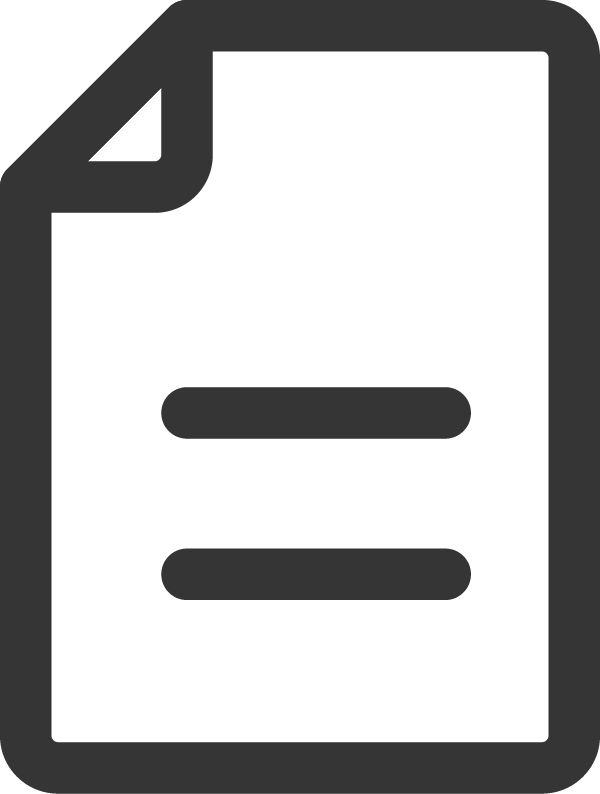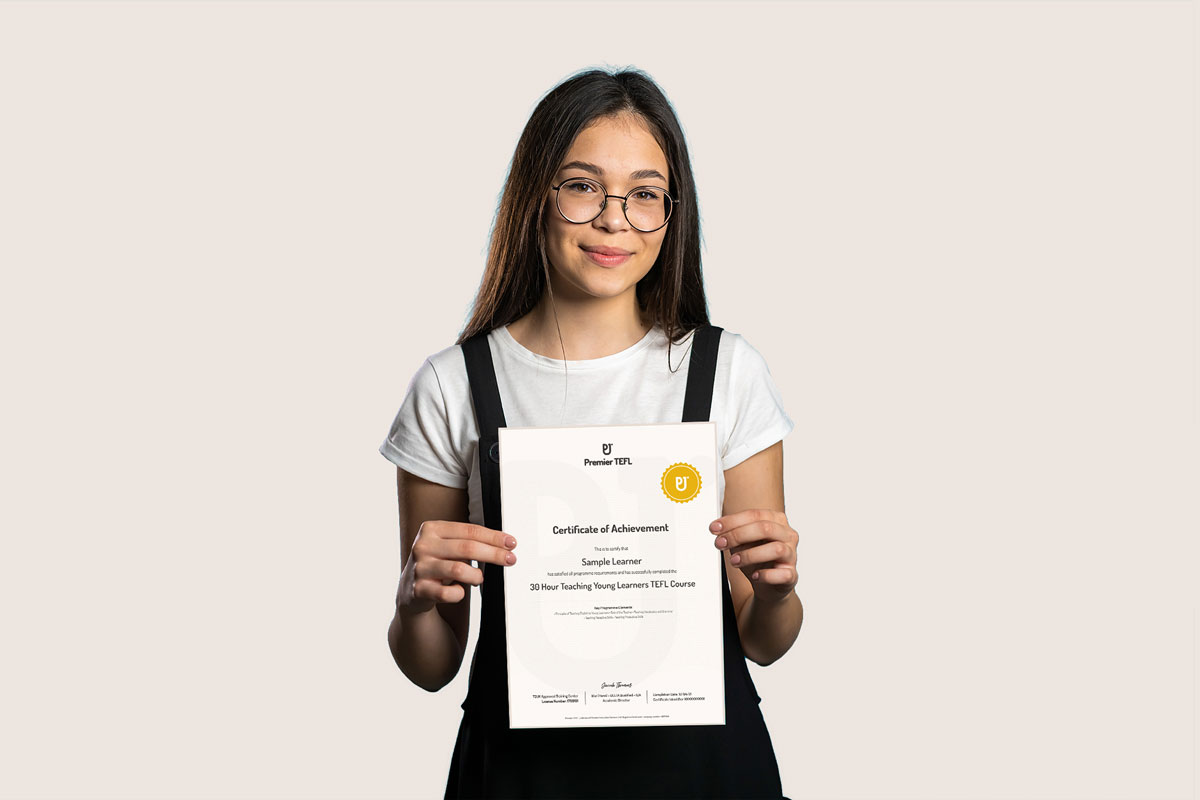 Premier TEFL Pledge
Premier TEFL Pledge



This course includes
What will you learn?
Teach the five key areas of language acquisition: reading, speaking, writing, pronunciation
Plan and deliver effective lessons that meet student and class learning objectives
Understand the nuances of teaching English to young non-native speakers
Grasp English grammar terminology and know how to teach it to students of all levels
Manage young learner classroom and student behaviour effectively
Find and create effective learning materials, text-based and digital to target language use
Grow in confidence as a new teacher to be able to enter your first young learners class
Search and find the best jobs, online and abroad
Requirements
English language minimum level: Fluent.
At least an international standard of intermediate or advanced fluency: B1
About this course
The course is divided into five modules. Each lesson is subdivided into bite size learning blocks which include real-life classroom examples, reflective tasks and an end of lesson assessment.
After you complete this certification for teaching three to 16 year olds you will know how to enter your first young learners English lesson well prepared and confident. 30 hours of TEFL-Pro teaching advice will teach you the skills to understand your students’ needs, plan suitable lessons, get hired and be successful in your new job.
Premier TEFL accreditation


 Premier TEFL has done wonders to introduce me to the world of teaching. All the information throughout this course is extremely detailed and well orgainzed. This course is a ABSOLUTE MUST for any aspiring English teacher for very young learners to teenagers.
Premier TEFL has done wonders to introduce me to the world of teaching. All the information throughout this course is extremely detailed and well orgainzed. This course is a ABSOLUTE MUST for any aspiring English teacher for very young learners to teenagers.

30 hour Teaching Young Learners Course
Modules One-Two:
Module One: How to Make Sense of Teacher/Learner Needs
Understanding your students’ language abilities and why they want to learn English. Get to know the basic principles behind teaching younger learners and teens.
Module Two: Understand Your Responsibilities as a Young Learners Teacher
Classroom routines are important in any good classroom but for younger learners it is vital to have structure and consistency. Learn classroom management techniques that will eliminate the chaos and make your lessons run smoothly.
Modules Three-Four:
Module Three: How to Teach Grammar and Vocabulary
Did you know that we say about 7,500 words on an average day? Don’t worry you will only be asked to teach your young learners a few hundred of these. From beginner vocab like HELLO and GOODBYE you’ll study the tools to teach vocabulary and use them effectively so that your students can use it in the right context.
By the end of this module, you’ll also know your present continuous from your present simple tense. Most of all, you’ll be familiar and confident with grammatical terms.
Module Four: How to Teach Reading & Listening Skills
These are called ‘Receptive skills’ because the student is receiving language. By the end of this lesson, you’ll know the most effective ways to engage students in reading English and how to write it. This includes setting listening tasks to music, audio stories and recordings, to reading articles, emails, facebook posts both inside and outside the classroom.
Modules Five:
Module Five: How to Teach Writing & Speaking Skills
These are called ‘Productive skills’ because students produce language. You’ll learn plenty of useful ideas about how to get your students up on their feet and chatting to you about favorite superheroes, games or pets. You’ll also get help with how to teach your students to write English – at all levels, from favorite foods, to their hobbies.
Preview your certificate
Take a look at your future Regulated TEFL Certificate
Certificate ID
Any employer can verify your certificate number when they enter it here. This world-beating system is used often by schools to ensure new teacher authenticity.
Frequently Bought Together
FAQs

Can I go back to study in the same place where I left?
Yes absolutely, the easiest way to pick up right where you left off is to bookmark that page. Typically this is a star icon in your browser

Can I get help securing a TEFL job?
Yes! We’re here not just to get you TEFL qualified, but it’s our mission to help you secure your first (or next) teaching English ad
Questions and Answers
What does TYL or TEYL stand for?
TEYL stands for Teaching English to Young Learners.
Who is a young learner?
A young learner is typically defined as someone between the ages of 3 to 16 years old.
How do I become a young learners English teacher?
There are no prerequisite qualifications to become a young learners teacher, however, you should hold an internationally recognised TEFL qualification and have some teaching experience.
Taking a professional development course in teaching English to young learners will help you understand how to be most successful at educating your YL class.
How do I get a job teaching young learners?
Teaching young learners is a common role for newly qualified English teachers. The job opportunities for teaching young learners are plentiful worldwide. In addition to classroom-based contracts there are hundreds of openings to teach English online to young learners one to one or in small groups.
Is it hard to teach young learners?
Teaching English to very young children can be challenging, particularly if you have little or no experience. Short, varied activities will be your key to success. The more exposure you have to work with children and teens, the better you will become at teaching this group of eager learners.
How do you teach young learners?
Young learners will best respond to these 6 key tips:
- Establish routines
- Keep discipline consistent and fair
- Understand student motivation (and tap into it!)
- Exercise patience
- Change activities frequently
- Swap partners / mix up groups
Let us take care of your first 10 lesson plans for teaching online. Check out our useful online teaching lesson packs here.
Can you teach young learners online?
Yes, teaching English to young learners online is very popular. Not only is it more affordable for parents, but it can be done from the comfort of home. Some online teaching platforms cater solely for young learners, with Chinese students making up a large portion of the student body.
In most cases, when teaching young learners online you will have a one to one class or a small group size (around 4 – 6 learners). Your students may be as young as five years old.
Want some ideas to get you started? Let us take care of your first 10 lesson plans for teaching younger learners online. See all available lesson packs here.
Teaching Young Learners English
Teaching Young Learners English
This course includes:
Customer Reviews
 (4.82)
(4.82)




